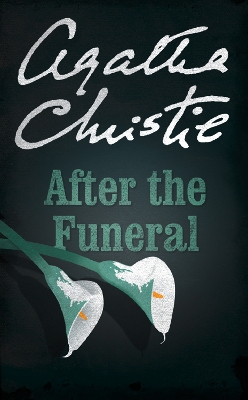Reviewed by brokentune on
Should murder make sense? Mr Entwhistle wondered. Academically the answer was yes. But many pointless crimes were on record. It depended, Mr Entwhistle reflected, on the mentality of the murderer.
This was my first time reading After the Funeral, but, of course, it is the story that is loosely used as the story in Murder at the Gallop, that classic Marple film starring the incomparable Margaret Rutherford.
This is all wrong, of course. After the Funeral is a Poirot mystery, not a Marple.
But other than this, the main plot is the same: a family gathering, a vague accusation, a brutal murder. Poirot joins the plot relatively late, and then potters about as Poirot does.
Which brings me to following: Poirot is the worst person to ever try and disguise himself. This is not the first time he does it, and every time I've seen him do it, it is just ridiculous.
Surely, Christie wrote this "disguise" malarkey as a bit of fun with the oh so famous and infallible Belgian.
And his name isn’t Pontarlier – it’s Hercules something.’ ‘Hercule Poirot – at your service.’ Poirot bowed. There were no gasps of astonishment or of apprehension. His name seemed to mean nothing at all to them. They were less alarmed by it than they had been by the single word ‘detective’.
After the Funeral is a fairly standard Poirot story, not the best, not the worst. There are a couple of things that do not work, like Poirot's attempt at making people confess to him. That was just plain silly.
However, I liked disliking most of the characters. It's a bit of dark satire, more than a murder mystery, but it isn't as good as other Poirot stories.
Reading updates
- Started reading
- 1 August, 2017: Finished reading
- 1 August, 2017: Reviewed
